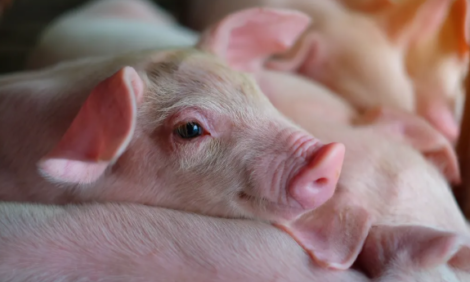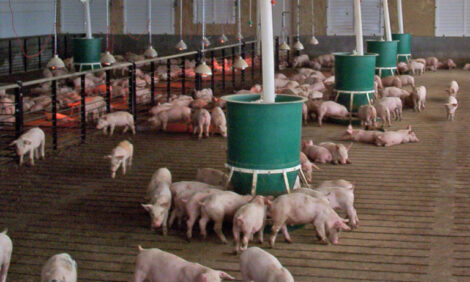



Effects of Enzymatically Hydrolysed Blood Cells on Growth Performance and Intestinal Characteristics of Weaned Piglets
Enzymatically hydrolysed blood cells may be a novel protein source for weaned piglets, say researchers at China's Northeast Agricultural University.An experiment was conducted by Qiushi Chen and others at Northeast Agricultural University in Harbin, China, to investigate the effects of enzymatically hydrolysed blood cells (EHBC) on growth performance, intestinal microflora, intestinal morphology and brush border enzymes in weaned piglets.
In the journal, Livestock Science, they explain that 72 28-day-old piglets (6.42±0.06kg) were randomly allotted to three dietary treatments with six replicates per treatment and four pigs per replicate.
They were fed ad libitum one of three iso-nitrogenous experimental diets with fish meal (FM), blood cells (BC) or EHBC, respectively.
Compared with FM diet and BC diet, the EHBC diet significantly increased average daily gain (P<0.01) and feed intake (P<0.01), whereas it significantly decreased the faecal score (P<0.05).
Moreover, villus height in the duodenum and jejunum was significantly increased (P<0.05) as were the activity of the aminopeptidase N, maltase and lactase (P<0.05) and the number of lactobacillus (P<0.05) in the caecum.
The number of Escherichia coli was decreased.
Chen and co-authors report that their results indicate that the EHBC was beneficial to growth and brush border enzymes and morphology. Thus, EHBC may be a novel protein source for weaned piglets.
Reference
Chen Q., H. Zhang, Y. Zheng, A. Shan, Z. Bi. 2013. Effects of enzymatically hydrolyzed blood cells on growth performance and intestinal characteristics of newly weaned piglets. Livestock Science. 157(2):514-519. doi:10.1016/j.livsci.2013.09.004
November 2013








